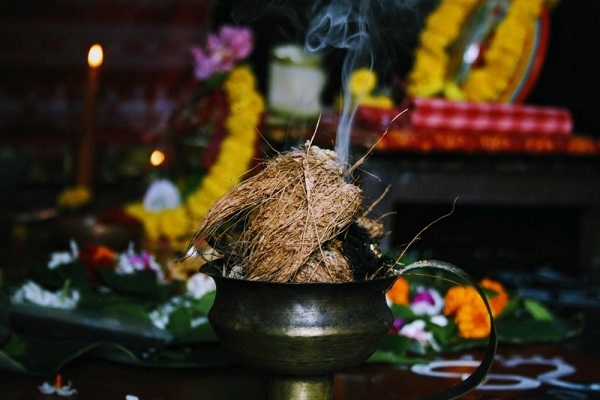Can Hinduism do without controversies and comparisons?
Total Views |
Marking good over evil, Navaratri, also called Sharada Navarati, is a major Hindu festival that is celebrated by Hindus around the world and in India over a span of nine nights post monsoon autumn. Navratri has a different significance all over India and is celebrated in the Hindu way worshiping the feminine power at peak.
Legend has it that the demon king Mahishasura was granted immortality by Lord Brahma, with the condition being that he could only be defeated by a woman. Mahishasura attacked all the three spheres, Trilok, which includes Earth, Heaven and Hell, and nobody could defeat him. Then Lord Brahma, Lord Vishnu and Lord Shiva combined their powers to create Goddess Durga.

What ensued was a 15 day log battle between Mahishasura and Goddes Durga, during which the demon king kept changing his form to confuse the goddess. When Mahishasura turned into a buffalo, Goddess Durga slayed him with her trishul. It was the day of Mahalaya when Mahishasura was killed.
But in today's time, what is offensive and worrisome is that individuals and groups are now powerful enough to enforce diktats on what can and cannot be worn, shown or eaten during Hindu festivals. Cultural identities and social conditioning determine whether or not to follow a particular set of rules, rites and rituals during a religious festival. What we are witnessing is a curtailment of these rights which are non-negotiable in a democracy that is founded on diversity.
In the India, Navratri is marked by fasting. In the another section of it, some festivals are marked by feasting. This fundamental cultural difference needs to be understood and respected. To deny this difference and enforce one set of beliefs, rites and rituals over others borders on cultural suppression. Shouldn't this be resisted and pushed back?
It is this diversity within and among cultures that makes Hinduism a living faith and not an ossified religion chained to antediluvian dogma and doctrine. There is no one Hinduism, and it’s not defined by one book. There is no one Hindu defined by one set of beliefs. There is neither Church nor Pope; neither Mecca nor Mullah. To coercively enforce an artificial oneness would be tantamount to Semitising one of the greatest religions in the world. Freedom would be cloistered. It would mirror everything that the essence of Hinduism militates against.
Those who wish to restrict the idea of being Hindu to their own narrow, bleak, joyless definition, circumscribed by what clothes to wear, what rituals to follow and food to eat, do great disservice to Hinduism. Those who give a pass to these bigots for fear of controversy and reprisal are enablers of bigotry. Hinduism can do without both. Hopefully, it is the prevalent view across India!

